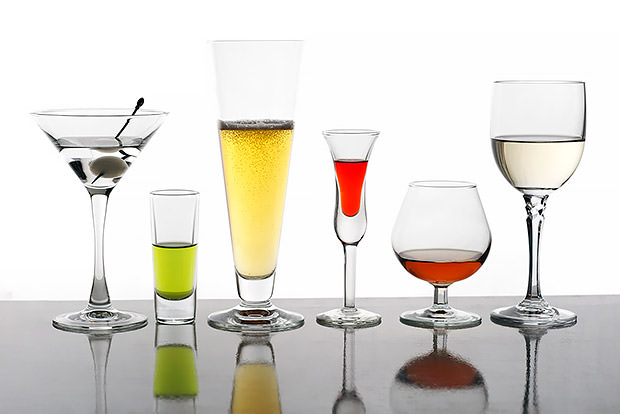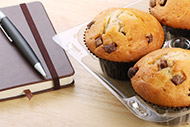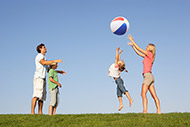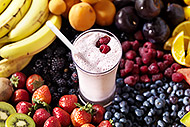
A few years ago, the consensus in the scientific community was that small amounts of alcohol provided health benefits. This conclusion was largely based on studies showing life expectancy increased with low alcohol intake. However, recent analysis discovered a significant flaw in the underlying research: people who quit drinking due to poor health were lumped into the "non-drinker" category. When you include this group (nicknamed "sick quitters") into the "drinker" category, the health benefits of alcohol disappear. In fact, researchers found there is no level of alcohol consumption without a measurable negative impact on health1.
Alcohol use is associated with an increased risk of liver disease, strokes, cancer, accidents, and many other negative outcomes. In this article, we will focus on how alcohol consumption can lead to excessive body fat.
Here are four ways alcohol can stall your weight loss efforts:
Less body fat is burned. Alcohol is converted to acetate by the body, which serves as a quick-burning fuel source. Acetate cannot be stored, so the body uses it for energy before it turns to carbohydrates or fat. When acetate from alcohol is available for energy, it becomes much more difficult to burn the fat necessary for weight loss.
Empty calories. One gram of alcohol contains seven calories, but unlike calories from carbohydrates, fat, and protein, alcohol offers little nutritional benefit. A high-calorie cocktail or a couple of regular beers can easily cause you to exceed your daily calorie requirement without providing the body with added nutrition.
Overeating. Alcohol decreases inhibitions and undermines willpower. Several studies have found that alcohol intake results in a short-term stimulation of appetite. Drinking is often done in a social setting with high-calorie food options. Combining increased appetite, fewer inhibitions, and easy access to unhealthy food is a recipe for overeating.
Disrupted routine. Alcohol disrupts the normal sleep cycle, reduces deep sleep, and can leave you feeling exhausted the next day. You are more likely to opt for an afternoon nap instead of sticking with your exercise routine, which results in fewer calories burned.
Thankfully, there are many great non-alcoholic beers and mocktails available today, so you can still treat yourself without the health consequences of alcohol.
Here are a few of our favorite non-alcoholic beers:
- Athletic Brewing — Typical craft beer offerings, like IPAs, porters, wheats, and stouts.
- Heineken 0.0 — A crisp lager that comes close to the original.
- Sober Carpenter — Non-alcoholic craft beers sold in large cans. The organic session IPA is our favorite.
Resources
1 The World Health Organization: No level of alcohol consumption is safe for our health



 4 Tips for Healthy Office Meetings
4 Tips for Healthy Office Meetings
 11 Healthy Distractions to Help You Stop Snacking
11 Healthy Distractions to Help You Stop Snacking
 6 Tips for Hosting a Healthy Party
6 Tips for Hosting a Healthy Party
 10 Ways to Cut 100 Calories (or more!)
10 Ways to Cut 100 Calories (or more!)
 8 Ways to Celebrate Your Weight Loss
8 Ways to Celebrate Your Weight Loss
 Healthy Changes You Can Make in Minutes
Healthy Changes You Can Make in Minutes
 6 Grocery Shopping Mistakes
6 Grocery Shopping Mistakes
 How to Keep Your Job From Hurting Your Health
How to Keep Your Job From Hurting Your Health

 Pinterest
Pinterest RSS Feed
RSS Feed